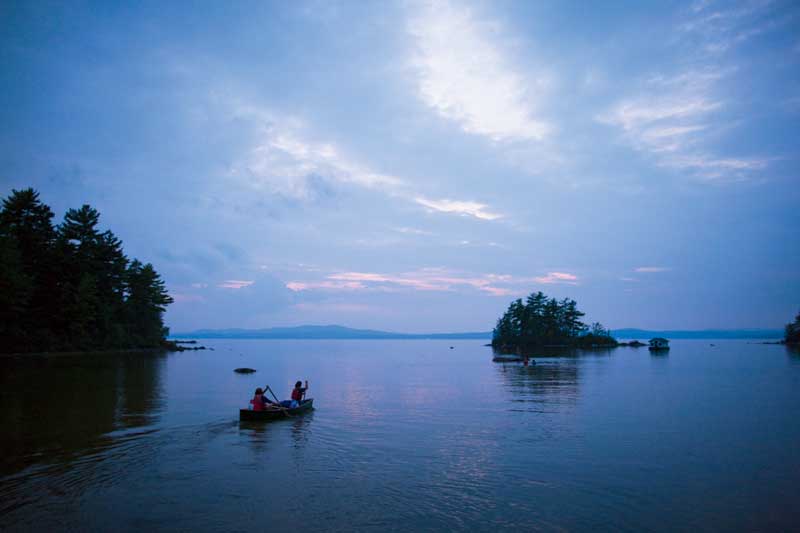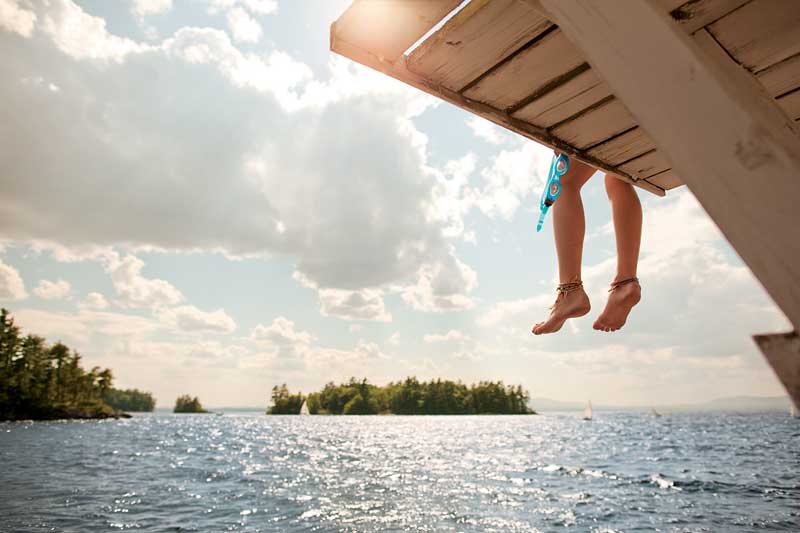Summer on Sebago Lake
Head a half-hour or so northwest of Portland, Maine, a city defined by the sea, and you’ll come to Sebago Lake. Around its 45 square miles you won’t find wilderness, unless a storm rolls in, dark as night, and that’s wild enough when it catches you. But like thousands of lakes in New England, Sebago […]

Canoe on Sebago Lake
Photo Credit : Richard Schultz
Photo Credit : Richard Schultz

Photo Credit : Richard Schultz

Photo Credit : Richard Schultz

Photo Credit : Richard Schultz

Photo Credit : Richard Schultz

Photo Credit : Richard Schultz
Head a half-hour or so northwest of Portland, Maine, a city defined by the sea, and you’ll come to Sebago Lake. Around its 45 square miles you won’t find wilderness, unless a storm rolls in, dark as night, and that’s wild enough when it catches you. But like thousands of lakes in New England, Sebago holds memory and tradition, and a deep sense of belonging. Along its shores are small resorts carved from the woods, summer cottages (“camps”) that have stood for generations, and overnight camps for children who make friends they never lose. We asked photographer Richard Schultz to watch days unfold on a summer lake until the quiet of darkness. For more than a week, he explored Sebago Lake on foot, in the water, by boat, and from his car, and found the stones that seem to skip forever through time and place.
Nowhere else in the country is the summer-camp experience for children so ingrained as along the lakeshores of New England. When Richard Schultz discovered Little Wohelo, a girls’ camp (ages 6–12) founded in 1907 on Sebago Lake, he was struck by the almost dreamlike quality of the classic and idyllic summer childhood still possible there. “The camp was amazing,” he says. “They were grounded and enjoying themselves. It was great to see these girls in such an outdoor, natural setting. They felt as if this was their home. I met people who’d gone to camp there 20 to 30 years ago. They still felt that they were Wohelo girls. There was a sense of everything in the world being forgotten, just kids being kids. The world fades away. No boys around; no electronic games; no television. Just friends, the outdoors, time on the water. A priceless, carefree time in their lives that they’ll treasure deeply as they get older.” Summer on the lake isn’t just for children. Time slows as well for guests at Migis Lodge, where a rustic elegance graces the lake—where after-dinner walks along lantern-lit paths may be accompanied by the cry of a loon, the rustle of wind, the pervasive scent of pine, and laughter spilling out from a nearby cottage. Lakeside festivities include a twilight cocktail; cardplaying while waiting out an impending storm at Migis Lodge; a pre-dinner gathering on the lodge’s porch; a boat ride to Frye Island; and a traditional Migis lobster bake. This article first appeared in Yankee Magazine in 2011.Mel Allen
Mel Allen is the fifth editor of Yankee Magazine since its beginning in 1935. His first byline in Yankee appeared in 1977 and he joined the staff in 1979 as a senior editor. Eventually he became executive editor and in the summer of 2006 became editor. During his career he has edited and written for every section of the magazine, including home, food, and travel, while his pursuit of long form story telling has always been vital to his mission as well. He has raced a sled dog team, crawled into the dens of black bears, fished with the legendary Ted Williams, profiled astronaut Alan Shephard, and stood beneath a battleship before it was launched. He also once helped author Stephen King round up his pigs for market, but that story is for another day. Mel taught fourth grade in Maine for three years and believes that his education as a writer began when he had to hold the attention of 29 children through months of Maine winters. He learned you had to grab their attention and hold it. After 12 years teaching magazine writing at the University of Massachusetts-Amherst, he now teaches in the MFA creative nonfiction program at Bay Path University in Longmeadow, Massachusetts. Like all editors, his greatest joy is finding new talent and bringing their work to light.
More by Mel Allen

